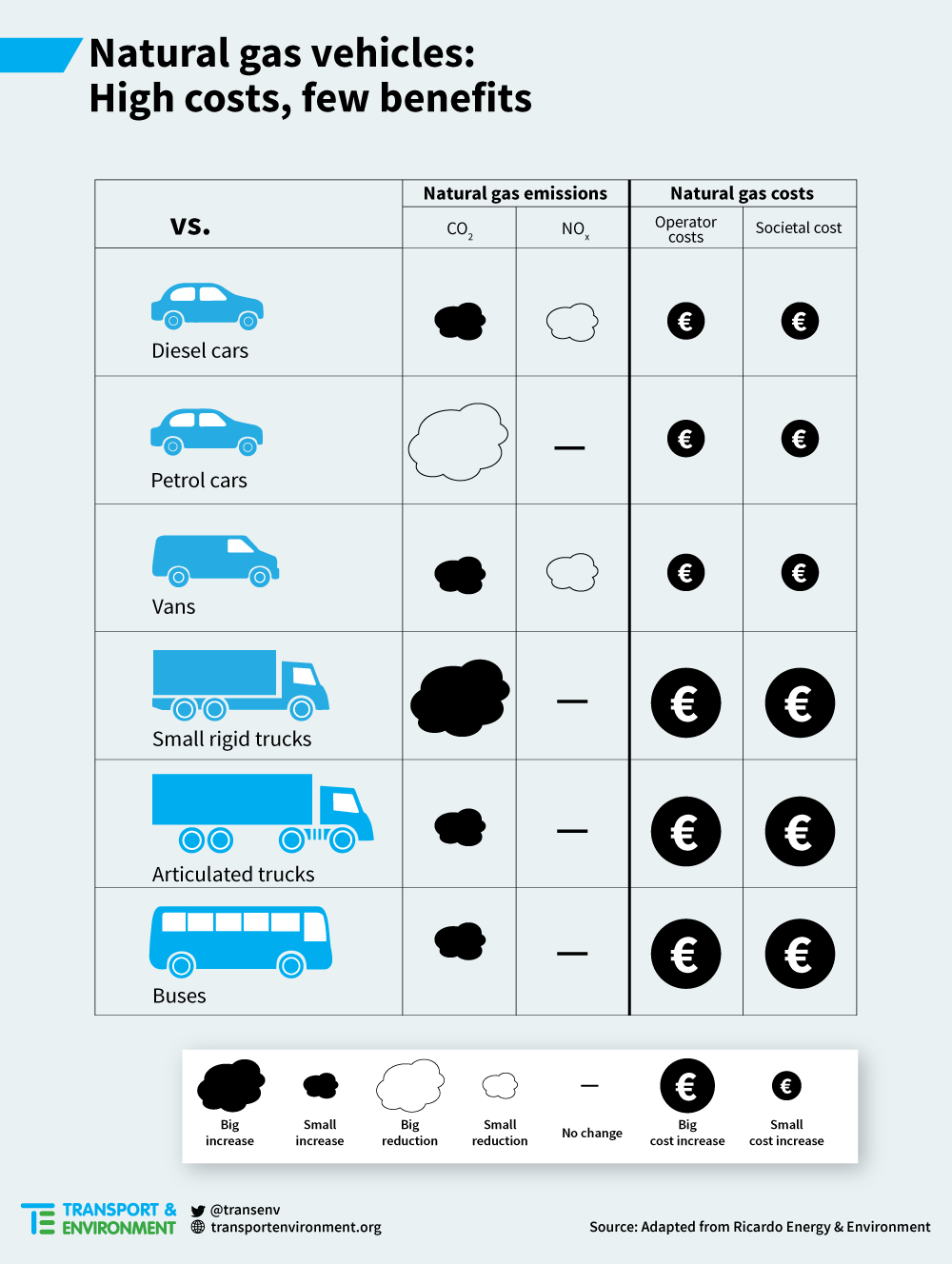
In February 2016, the European Commission released a proposal to guarantee its gas supply security and is preparing another one to implement the EU’s 2030 climate targets for the transport, buildings and agriculture sectors. It is also developing a communication to decarbonise the road transport sector, to be announced this summer. To understand what role natural gas could have in achieving these objectives, T&E commissioned a study from Ricardo Energy & Environment to assess the impacts of large-scale use of natural gas in the transport sector.
As T&E’s briefings (downloadable below) explain, the study concludes that the increased use of natural gas in road transport is largely ineffective in reducing greenhouse gases or air pollution. The immediate benefits are small or non-existent; while the environmental costs, societal costs and costs to operators are negative for almost all vehicle categories.
While the study also finds clear air pollution advantages from using LNG in the shipping sector, its GHG emissions benefits are highly dependent on methane slip at the production, distribution and operational levels. LNG ships also incur higher infrastructure and capital costs.
Natural gas is not a ‘bridge fuel’, as claimed, but an expensive dead-end on the pathway to decarbonising transport.


